Japan, South Korea welcome North Korea’s decision on halting nuclear tests
Japanese and South Korean leaders have praised the momentous decision made by North Korean leader Kim Jong-un to halt his country’s nuclear tests and intercontinental ballistic missile launches and abolish an atomic test site as a sign of earnestness in seeking peace with rival South Korea.
“This is a step forward. I welcome it,” the Kyodo news agency quoted Japan’s Prime Minister Shinzo Abe as saying in a press conference in the capital Tokyo on Saturday.
The Japanese premier, however, seemed to be less sanguine as he expressed doubt whether this move would “lead to the complete, verifiable and irreversible dismantlement of its nuclear arsenal, weapons of mass destruction and missiles.” Abe also said that he would like to “keep a close eye on the developments.”
His remarks came a few hours after the North Korean leader said in a statement that his country’s quest for nuclear weapons was “complete” and it “no longer needs” to test its weapons capability.
Kim was also cited as saying that the suspension will start Saturday and that he would also shut down the site where the country conducted its previous six nuclear tests in a bid to pursue economic growth and peace on the Korean Peninsula.
Meanwhile, the office of South Korea’s President Moon Jae-in issued a statement, hailing Kim’s promise as meaningful.
“North Korea's decision is meaningful progress for the denuclearization of the Korean Peninsula, which the world wishes for,” the South’s Yonhap news agency further quoted the statement as saying on Saturday.
The statement also praised the decision for creating a “positive environment” a week before a meeting between Kim and Moon due to be held in the Demilitarized Zone that divides the volatile peninsula. The meeting is perceived as a precursor to an eagerly-awaited planned encounter between Kim and US President Donald Trump, expected to be held at the end of May or beginning of June.
Trump has also welcomed Kim’s decision as “good news for the world,” and said that he was “looking forward” to meeting with Kim in a summit.
Additionally on Saturday, Russia, China, the EU, and the UK also welcomed Kim’s move.
Pyongyang, which has so far resisted the pressure campaign led by Washington to try to force it to halt its weapons program, eventually announced the completion of its nuclear weapons program at the start of this year.
Back in late March, Kim made a historic visit to China to hold talks with Chinese President Xi Jinping and discuss ongoing developments on the Korean Peninsula. It was Kim’s first foreign trip since rising to power in 2011.
China remains the North’s main ally and trade partner, though their relations briefly cooled when Beijing began enforcing sanctions by the UN Security Council aimed at containing Pyongyang’s nuclear and missile programs.
Pyongyang says its weapons are defensive in nature and a necessary deterrent against potential hostility by Washington and its regional allies, including South Korea.
Washington and Pyongyang have no diplomatic relations. The US has imposed many rounds of sanctions on North Korea, has substantial military presence near the country, and numerously threatened to invade it.
Tensions on the Korean Peninsula were running high in 2017. Trump’s threats last year prompted North Korea to conduct its most powerful nuclear test to date and launch intercontinental ballistic missiles capable of reaching the US mainland.
Latest ballots polls show Harris, Trump tied as voting continues
UNRWA warns of humanitarian collapse in Gaza
'Hello my enemies': Lebanese journalist on Israeli threats and his resolve to continue
Outrage in France as MP proposes bill to ban criticism of Israel
VIDEO | The strategy of Hezbollah in war
Israeli military withdraws several brigades from southern Lebanon: Report
48-year-old Palestinian man serving 48 life terms completes 22 years in Israeli jails
From MKO to Tondar, how Germany became safe haven for anti-Iran terror groups


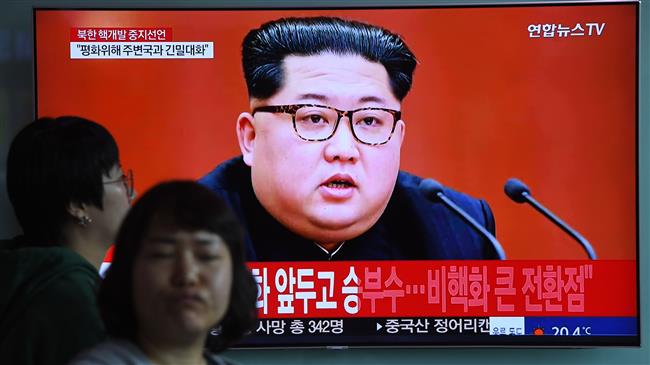


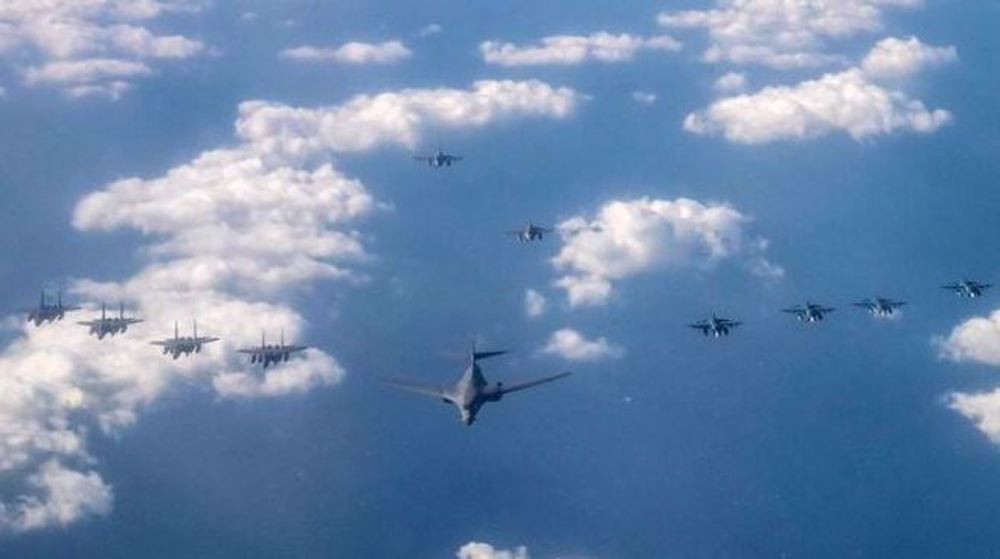
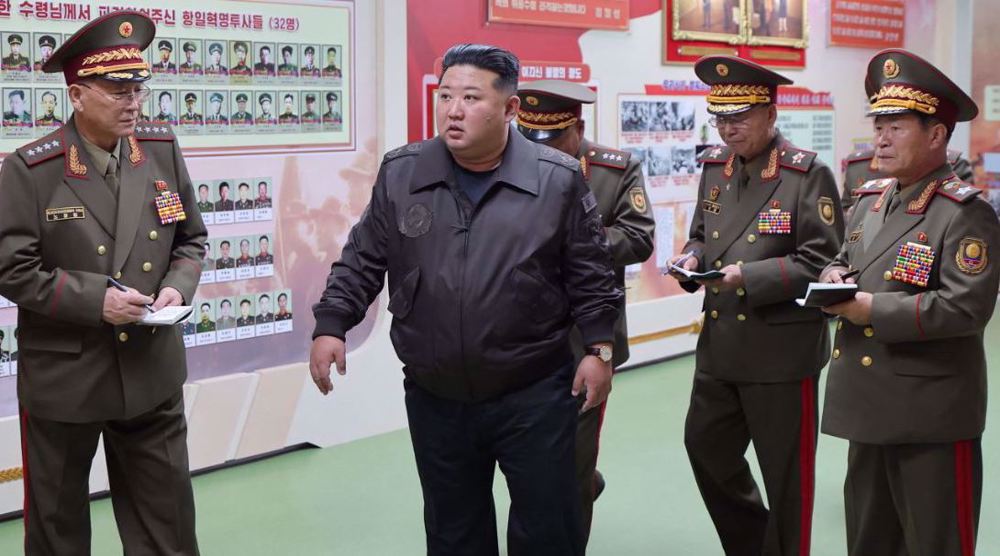
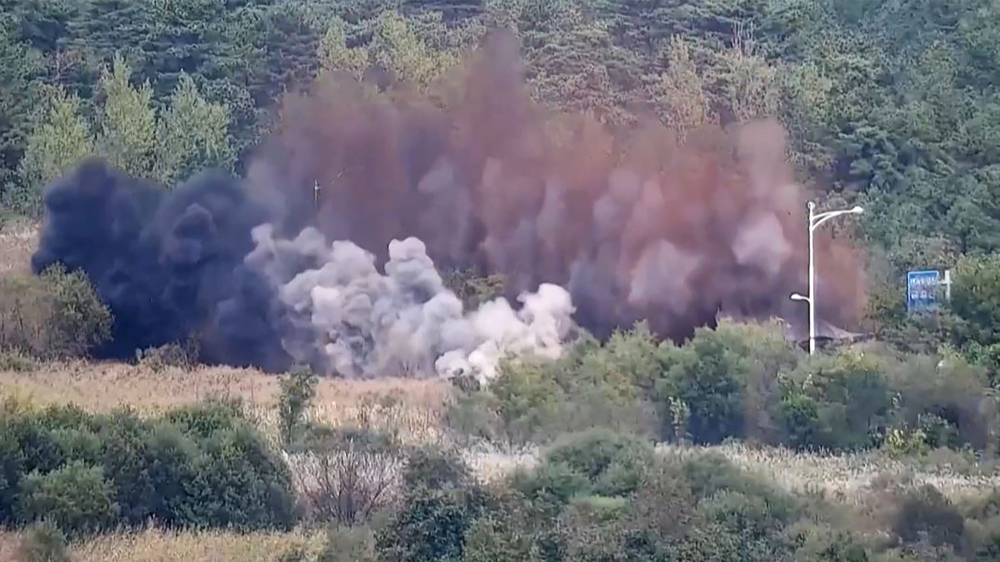



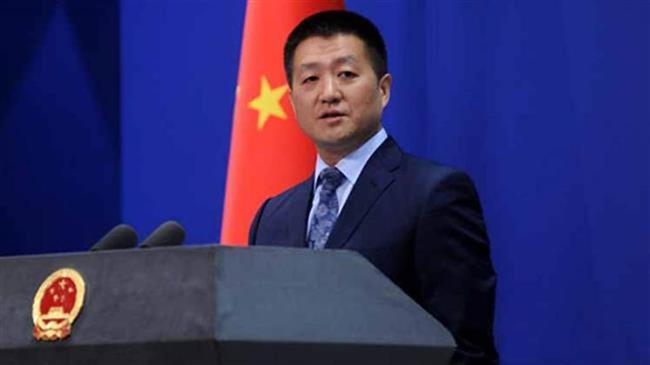
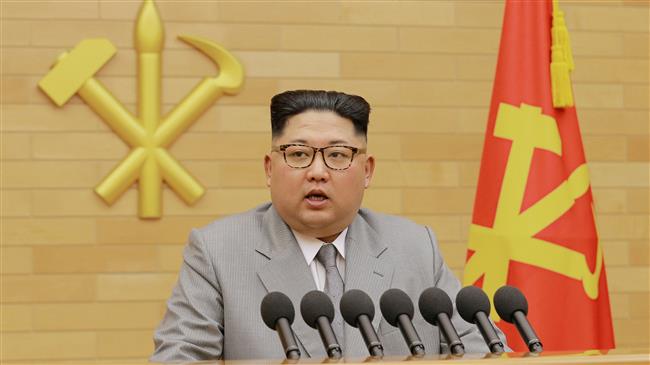

 This makes it easy to access the Press TV website
This makes it easy to access the Press TV website